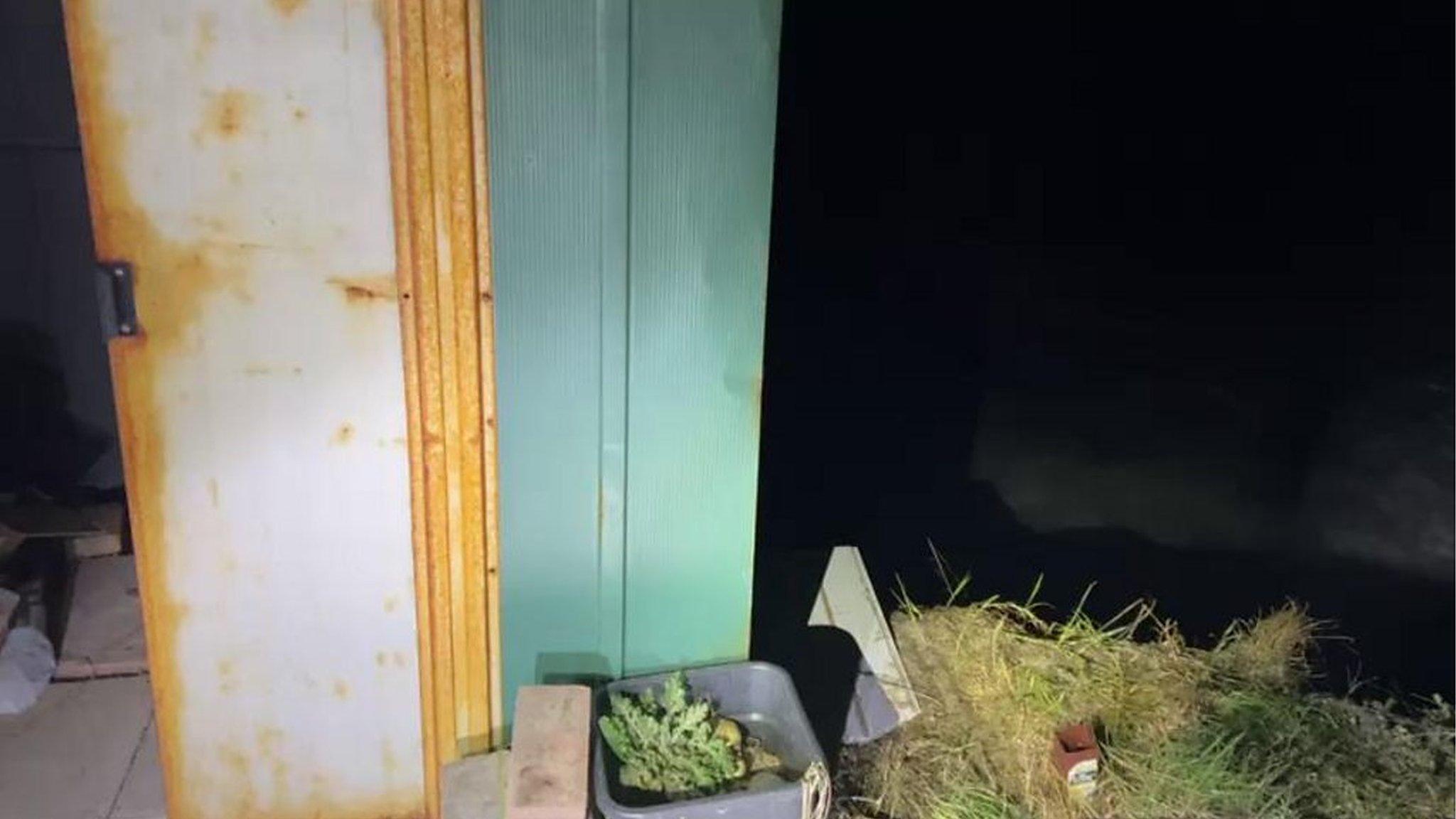'Cutting-edge' project investigates coastal erosion
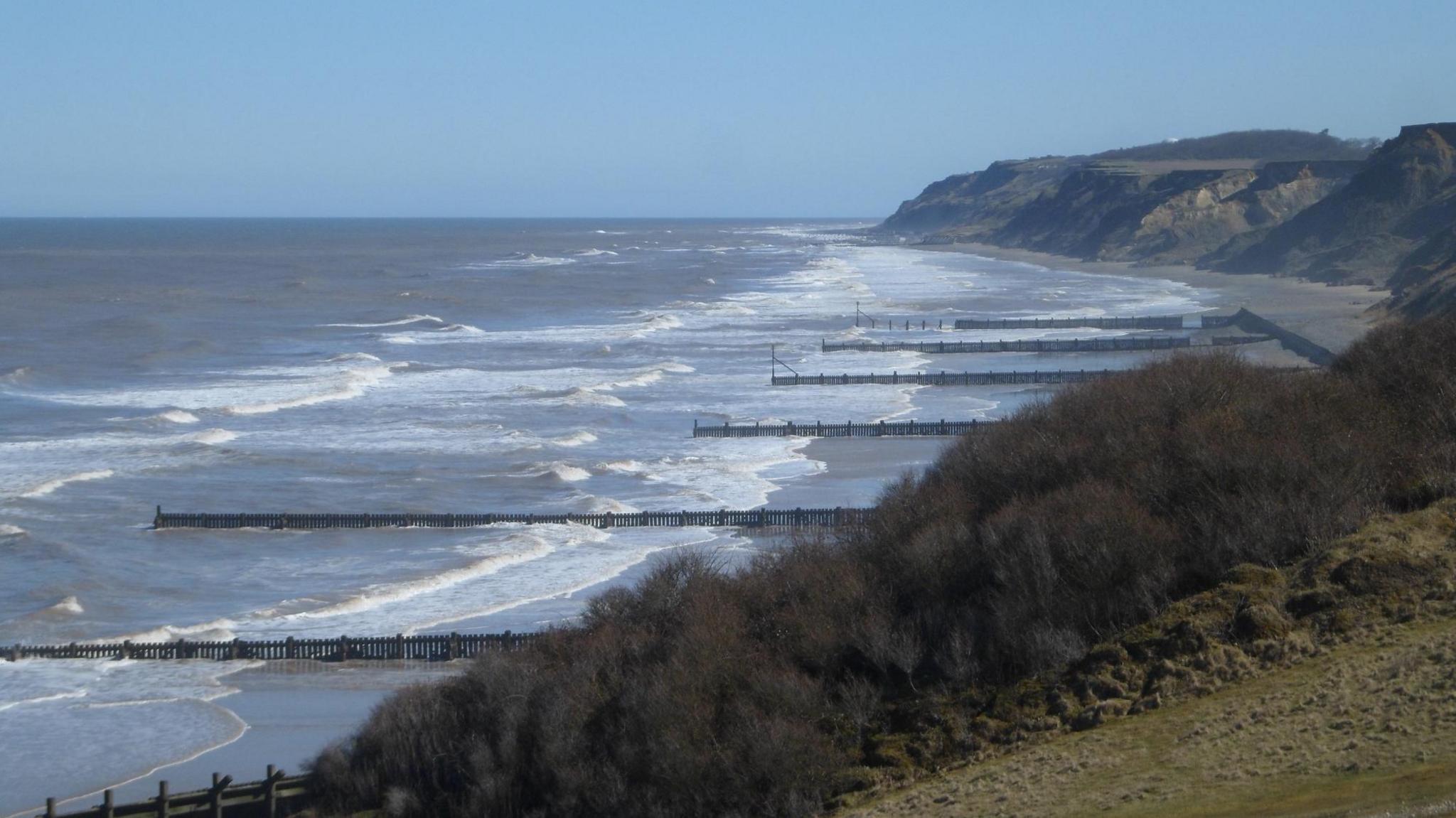
About 28% of the English and Welsh coastline is experiencing erosion rates of at least 10cm (3.9in) every year
At a glance
The University of East Anglia (UEA) has launched a new project investigating coastal erosion and cliff collapse
UEA's School of Environmental Sciences is collaborating with North Norfolk District Council and the British Geological Survey
The study will map and monitor weaker areas of cliffs and collect data to understand the causes of erosion
- Published
A "cutting-edge" project investigating the processes that cause coastal erosion and cliff collapse is being launched by the University of East Anglia (UEA).
It has acquired "state-of-the-art" fibre optic ground sensing equipment that will be used to detect erosion on the north Norfolk coast, between Sidestrand and Trimingham.
The study aims to map and monitor weaker areas of cliff that are more likely to fail in the future and use collected data to further understand the cause of the issue.
The Distributed Strain, Temperature and Acoustic Sensing Suite (DiSTANS) project is being led by UEA's School of Environmental Sciences, in collaboration with North Norfolk District Council and the British Geological Survey.
About 28% of the English and Welsh coastline is experiencing erosion rates of at least 10cm (3.9in) each year, UEA said.
Climate and environmental change would likely lead to a significant increase in erosion rates, placing cliff-top communities like those in north Norfolk at greater risk.
Because of the growing hazard, the university said it was "crucial" to understand erosion processes, including how and when they might threaten buildings and other infrastructure built on cliffs.
The DiSTANS project will conduct geophysical monitoring of the ground through distributed sensing - a new technology using optical fibre in a similar way to radar.
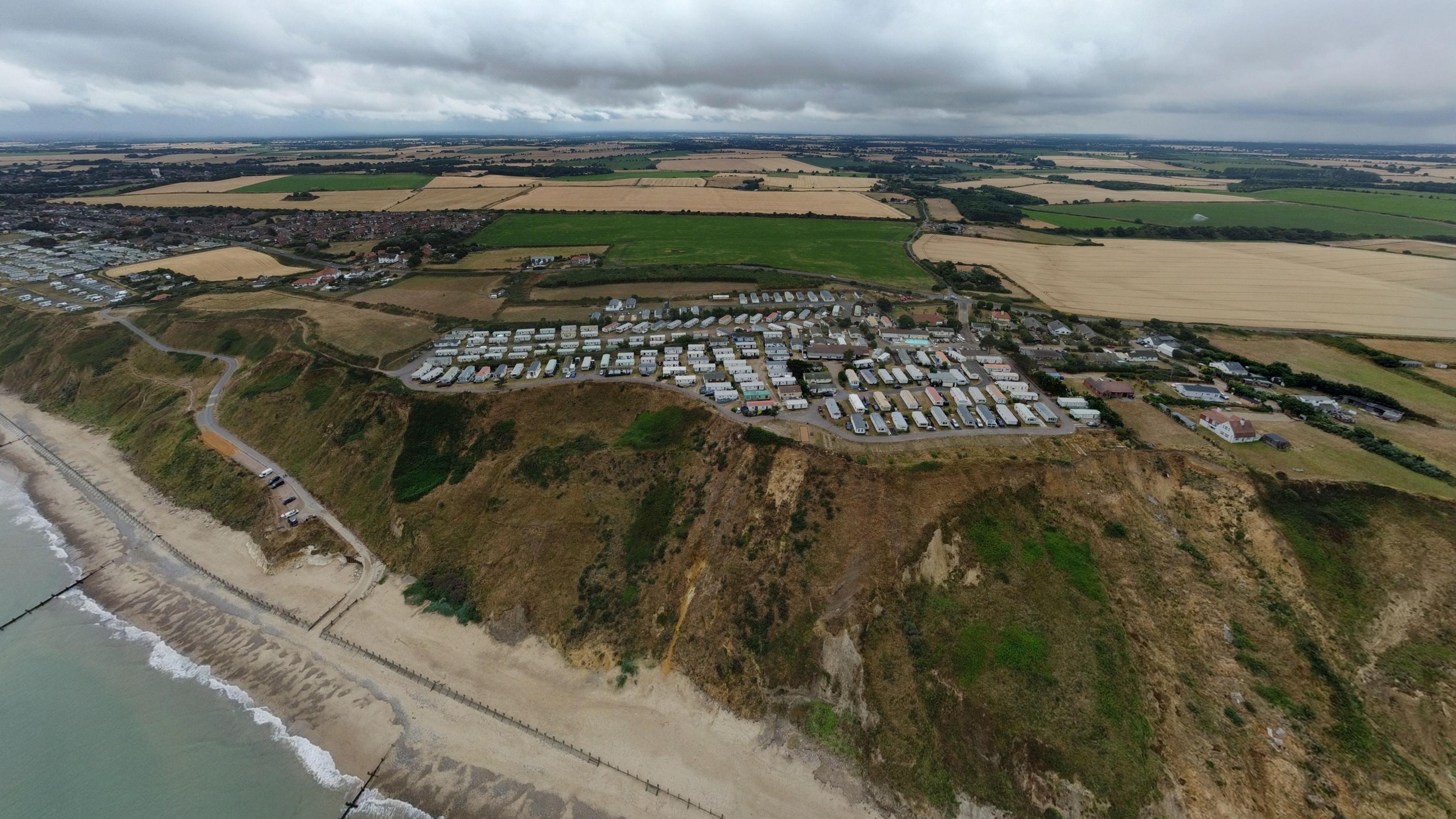
The new fibre optic ground sensing equipment will be used to detect weaker parts of cliffs
Harry Blathwayt, portfolio holder for the coast at North Norfolk District Council, said: "We are pleased to work with UEA's School of Environmental Sciences and the British Geological Survey on a technologically-advanced pilot project to study on erosion patterns.
"The impacts of coastal erosion are strongly felt here in north Norfolk as one of the hardest hit coastlines, and our communities are witness to the risks that rapid erosion poses.
"This is a really interesting area of research to understand if this type of technology could be used to help to predict cliff collapses."
Follow East of England news on Facebook, external, Instagram, external and Twitter, external. Got a story? Email eastofenglandnews@bbc.co.uk, external or WhatsApp us on 0800 169 1830
- Attribution
- Published24 March 2023
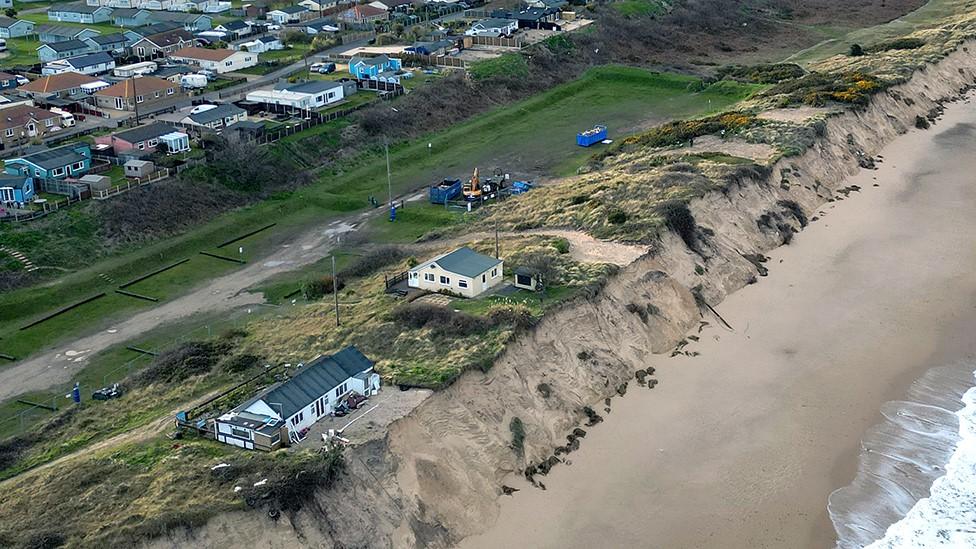
- Published12 March 2023
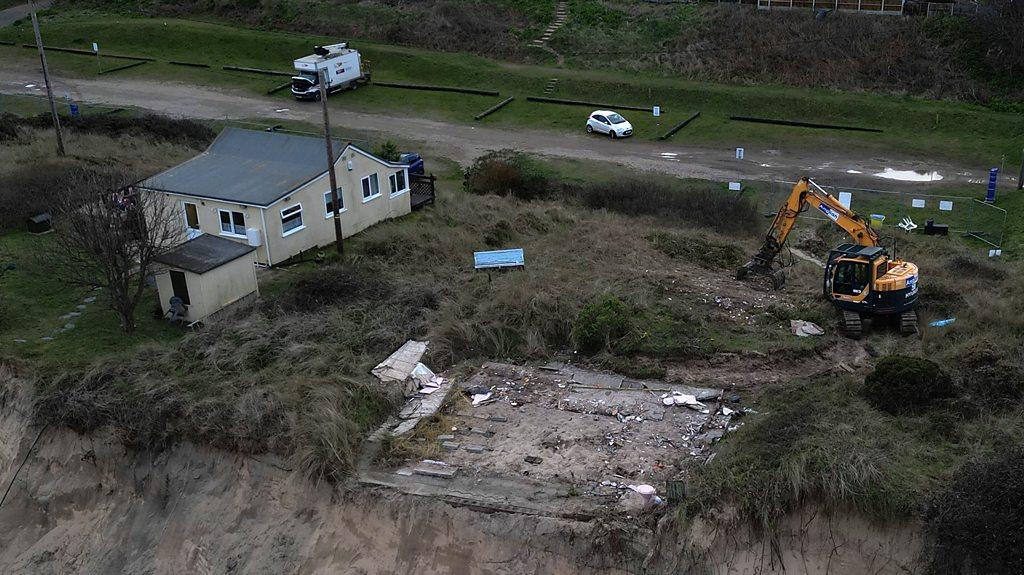
- Published11 March 2023
